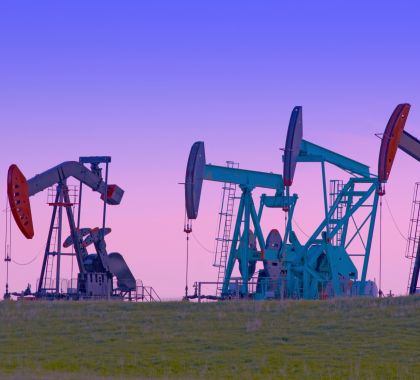Editor’s Note: State Sen. John Cooke (R-Greely), a retired county sheriff, is serving his second term in the Colorado Senate. Cooke is the assistant minority leader and serves on the Committee on Legal Services, the Judiciary Committee, and the Legislative Council.
Burnett: In 2018, Colorado voters overwhelmingly rejected a ballot initiative that would have prevented new oil and gas development on approximately 85 percent of the nonfederal land in the state. Then, less than a year after the election, the legislature, with Democrats now in control, placed new restrictions on oil and gas development that are in some ways even more stringent than those rejected by the voters. What are your thoughts on the new law?
Cooke: This horrible, partisan law will devastate the oil and gas industry in Colorado. Colorado is the sixth-largest oil and gas producer in the nation. In November 2018, Colorado voters soundly rejected Proposition 112, a ballot measure funded by anti-energy activists, that would have placed 2,500-foot setbacks from every well drilled in the state—a de facto ban on new development. The Democrats lost on policy but won at the ballot box and now control the Senate, House, and governor’s office.
This new law, Senate Bill 19-181, allows cities and counties to ban energy development under the guise of local control. Currently, nine communities have placed bans on fracking within their jurisdictions.
The county I’m from, Weld County, is the largest oil and gas producer in the state, with over 25,000 wells, more than all the other counties combined. Because of the revenues from energy development, Weld County has no debt—everything is paid for in cash, and there is no bonding for infrastructure—no county sales tax, and very low property taxes. The county commissioners realized what a devastating effect S.B. 19-181 would have on our economy, so they are fostering and encouraging oil and gas exploration through local control instead of going through the Colorado Oil and Gas Conservation Commission.
Burnett: What effect does the new law have on local control of decisions over whether to allow oil and gas extraction?
Cooke: As those of us who opposed S.B. 19-181 predicted, Weld County’s type of control isn’t allowed. Only Boulder-type local control is acceptable under our current governor and Democrat attorney general.
The AG, Phil Weiser, went so far as to send a letter to Weld County’s commissioners telling them Weld County isn’t permitted to exercise its own local control, which would bypass the state in granting the industry permits to drill new wells. According to the AG, local control only applies if a jurisdiction wants to make the rules and regulations more stringent than the state’s.
If Weld County complies with the Democrats, it will be economic suicide. I see this heading to court. Weld County will fight every way we can.
Burnett: Fracking has been proven safe again and again, and Coloradans have benefitted from it both directly and indirectly. What do you think is really behind these bills to stop new oil and gas production?
Cooke: Colorado Democrats have moved so far left and are intellectually dishonest. They want to end all hydrocarbon development and use, to advance industrial wind and utility-scale solar regardless of the cost to consumers or Colorado’s economy. They have an unhealthy, unscientific hatred for oil and gas. They have no use for science when it comes to hydraulic fracturing, drilling, or the ability to power our state.
They continue to beat the drum that fracking is a health concern and contaminates groundwater, automatically accepting these claims with no evidence or proof. It’s an emotional issue for them, with no basis in economics or science.
Burnett: The Democratic legislative majority also voted to disenfranchise Colorado voters during presidential elections, passing a National Popular Vote (NPV) bill giving states with large populations authority over the electors from Colorado when Colorado voters don’t choose the candidate who won the popular vote nationwide. Why should voters outside of Colorado get to decide whom Coloradans support for president?
Cooke: They shouldn’t! Our Founding Fathers were very wise and distrusted simple majority rule for the federal government, and they feared larger states would dominate smaller states. So they established the Electoral College. The United States is 50 independent states. To become president, a candidate must win a majority of votes in a large number of states.
If NPV becomes the law in Colorado, we will hand over our delegates to California, Florida, Illinois, New York, and Texas. Colorado will be a flyover state, and no presidential candidates will campaign here. They will concentrate all their time and effort on those top-population states.
However, there is hope. Coloradans of all political stripes got angry over the Democrats passing NPV and turned their anger into action. They got over 225,000 signatures to put NPV on the ballot and override the legislature.
Local organizers and volunteers obtained more signatures for this initiative than any other in Colorado history. NPV will hang like a millstone around the necks of Democrat candidates in 2020.
H. Sterling Burnett, Ph.D. ([email protected]) is a research fellow at The Heartland Institute.
Official Connections:
State Sen. John Cooke (R-Greely): https://leg.colorado.gov/legislators/john-cooke; [email protected]





